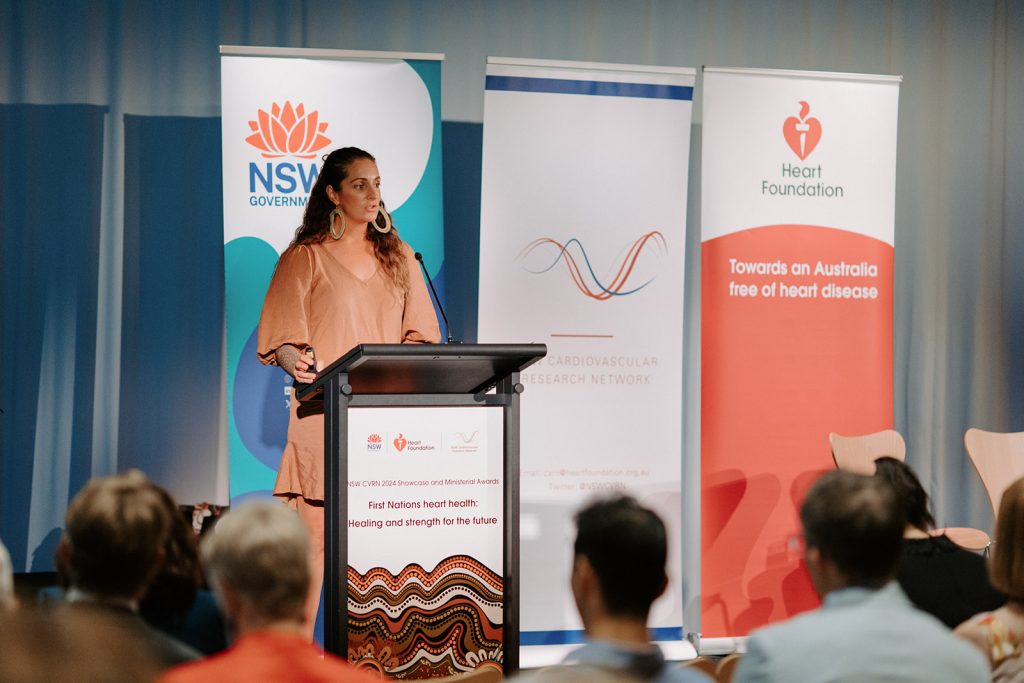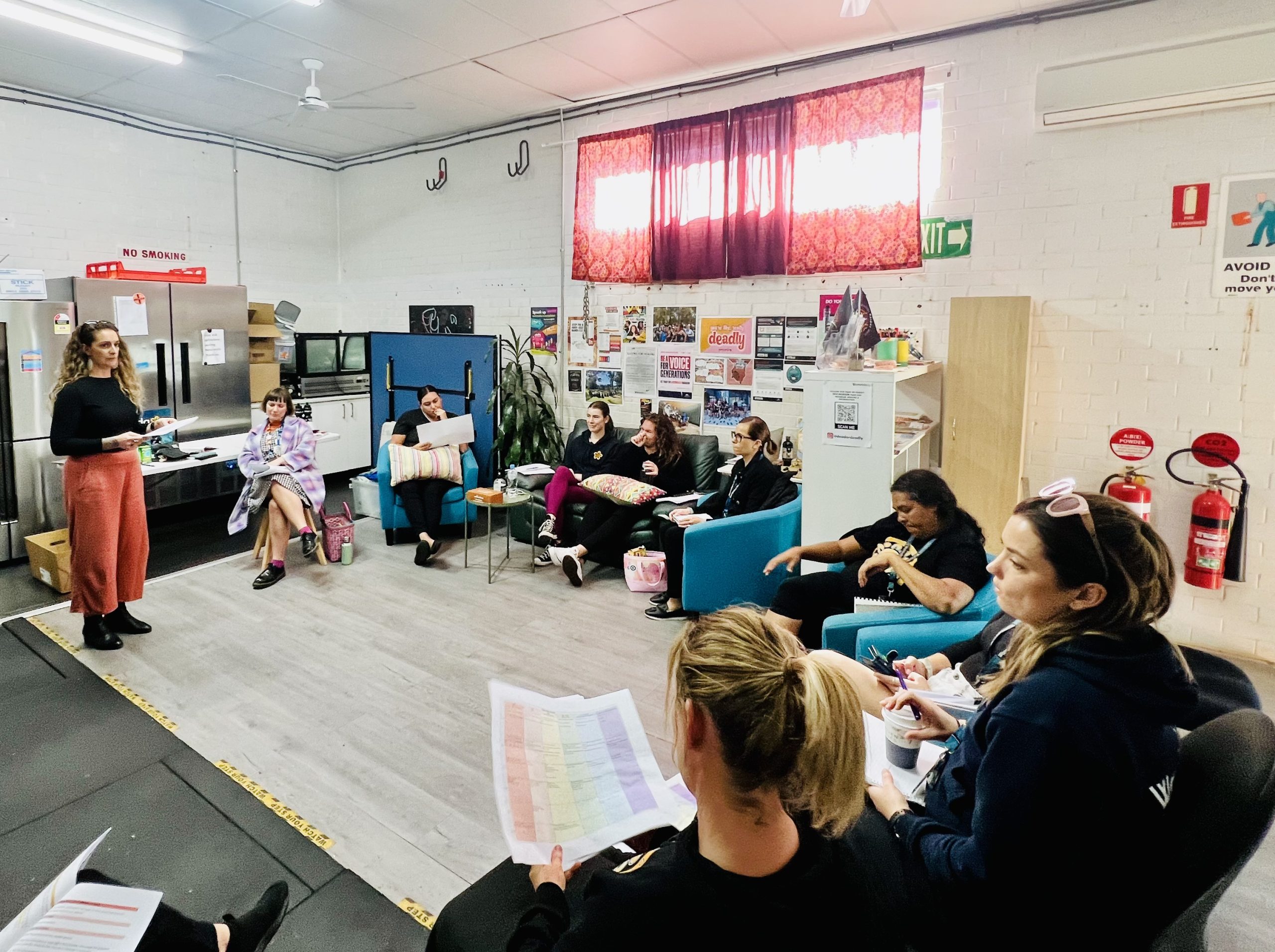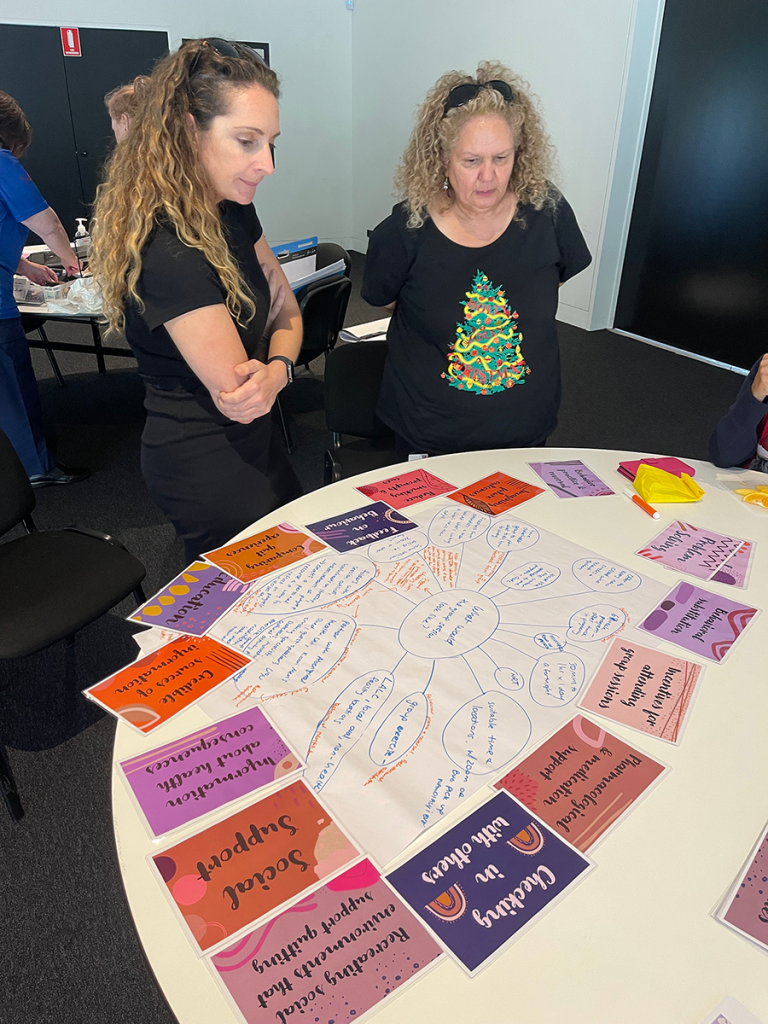Smoking Cessation In Pregnancy
Associate Professor Michelle Kennedy, Proud Wiradjuri Woman
Assistant Dean Indigenous Strategy and Leadership, College of Health, Medicine and Wellbeing, University of Newcastle

An early career researcher, Kennedy has also worked as an artist, community development practitioner and social worker in the Hunter New England area. She is passionate about social determinants of health, and how Aboriginal research methodologies and ethical practices in Aboriginal health research can better inform policy and practice. Kennedy is committed to partnering with Aboriginal communities to help place power in their hands and give them a voice while addressing Aboriginal and Torres Strait Islander health priorities. She has a special interest in smoking cessation, and her PhD in Aboriginal Health addressed ‘Culturally responsive approaches for the empowerment of Aboriginal and Torres Strait Islander women in smoking cessation care’. “I entered research because what was being published about us did not reflect what I knew was happening in my community,” she explains. “I am both an ex-smoker and mother so I also understand this first hand, through my own lived experience. A lot of research reports Aboriginal and Torres Strait Islander mothers and smoking in a negative way that makes it look like we don’t care about our babies, but that is false. We care deeply about our babies – they are our future.”

Tobacco control evaluations have found that Aboriginal and Torres Strait Islander people are more likely than the general population to make a quit attempt, but less likely to succeed. This evidence suggests that while motivation to quit is high, it is possible that support for smoking cessation care may not be culturally appropriate and meaningful. Recognising this, Kennedy conceptualised and has led ‘Which Way’, a study program which takes a collaborative and culturally responsive approach to building an Aboriginal -led, evidence-based approach for effective smoking cessation care. “We have engaged in co-design to utilise community-based research practices that incorporate western knowledges and Aboriginal knowledges,” Kennedy points out. “Our team includes Aboriginal and Torres Strait Islander women with skills and expertise in social work, medicine, nursing, smoking cessation and psychology, who partner with Aboriginal Health Services to co-design our program and research practice. ‘Which Way’ has reframed deficit narratives about Aboriginal and Torres Strait Islander women and elevated their voices to inform what support is offered to them during pregnancy and beyond.”

Led by Aboriginal and Torres Strait Islander people and communities, Kennedy’s important work is also informing national policy to decrease the number of babies born with low birth weight, in line with the Closing the Gap reform. “During the ‘Which Way’ research, our process of co-design has included systematic reviews of the evidence and a series of workshops with community partners including managers, nurses and midwives, Aboriginal Health Workers and Aboriginal Health Services to develop a group-based smoking cessation model of care,” Kennedy explains. “The final stages will involve community partners testing the implementation of the smoking cessation groups and hearing from health workers and women. The program will then roll out across NSW in the later stages of this year, which means that any pregnant Aboriginal and Torres Strait Islander woman will have access to culturally responsive smoking and vaping cessation care.”
At the CVRN showcase and awards evening, Indigenous health leaders discussed the life-changing impacts and outcomes of their outstanding ‘ in-community’ work. Learn more.
Updated 5 months ago